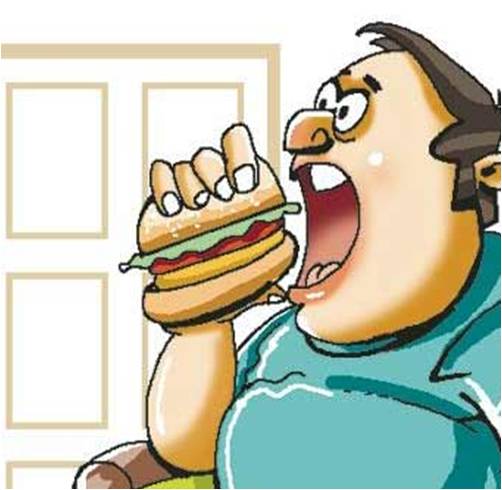What are Eating Disorders?
Many eating disorders get their start from a simple diet. These disorders then go on to involve physiological changes associated with food restricting, binge eating, purging, and fluctuations in weight.
They also involve a number of emotional and cognitive changes that affect the way a person perceives and experiences his or her body, such as feelings of distress and extreme concern about body shape or weight.
Eating-disorders are not due to a failure of will or behavior. Rather, they are real, treatable medical illnesses in which certain maladaptive patterns of eating take on a life of their own.
Types of Eating Disorders
 |
|
The main types of eating disorders are anorexia nervosa and bulimia nervosa.
A third type, binge eating disorder, has been suggested but has not yet been approved as a formal psychiatric diagnosis.
85 percent of these disorders frequently develop during adolescence or early adulthood.
However some research reports indicate their onset can occur during childhood or late in adulthood.
These disorders frequently co-occur with other psychological disorders such as depression, substance abuse, and anxiety disorders.
A person who suffers from an eating disorder can experience a wide range of physical health complications, including serious heart conditions and kidney failure, which may even lead to death.
Recognition of these health problems as important and treatable diseases therefore is very crucial.
Causes of an Eating Disorder
These disorders can arise from physiological, environmental or biological abnormalities.
The media also plays a role in the rising of these incidences as it presents views and opinions of models and celebrities concerning ideal physical body shape. In so doing, the media distorts reality because some of these models and celebrities may be naturally slim.
Stress may have an especially strong role in the development of any of these disorders.
An underlying commonality seems to be the lack of appropriate coping mechanisms as individuals begin to reach adolescence and young adulthood, coupled with dysfunctional family relationships.
Treatment of an Eating Disorder
Treatment depends on the type of an eating disorder and its severity. Some cases may be treated through nutritional counseling while others may require specialized therapy.
Do you know someone who is at a risk of an eating disorder? If so, suggest that the person seek a professional evaluation because, the sooner the treatment begins, the better.
However, do not try to diagnose these disorders in your friends or family members. Only a professional can exclude other possible diseases and correctly evaluate the diagnostic criteria required to make a diagnosis of anorexia nervosa or bulimia nervosa.
Once a disorder is diagnosed, immediate treatment is advisable. As a friend, the best you can do is to encourage an affected person to seek professional help.








New! Comments
Have your say about what you just read! Leave me a comment in the box below.